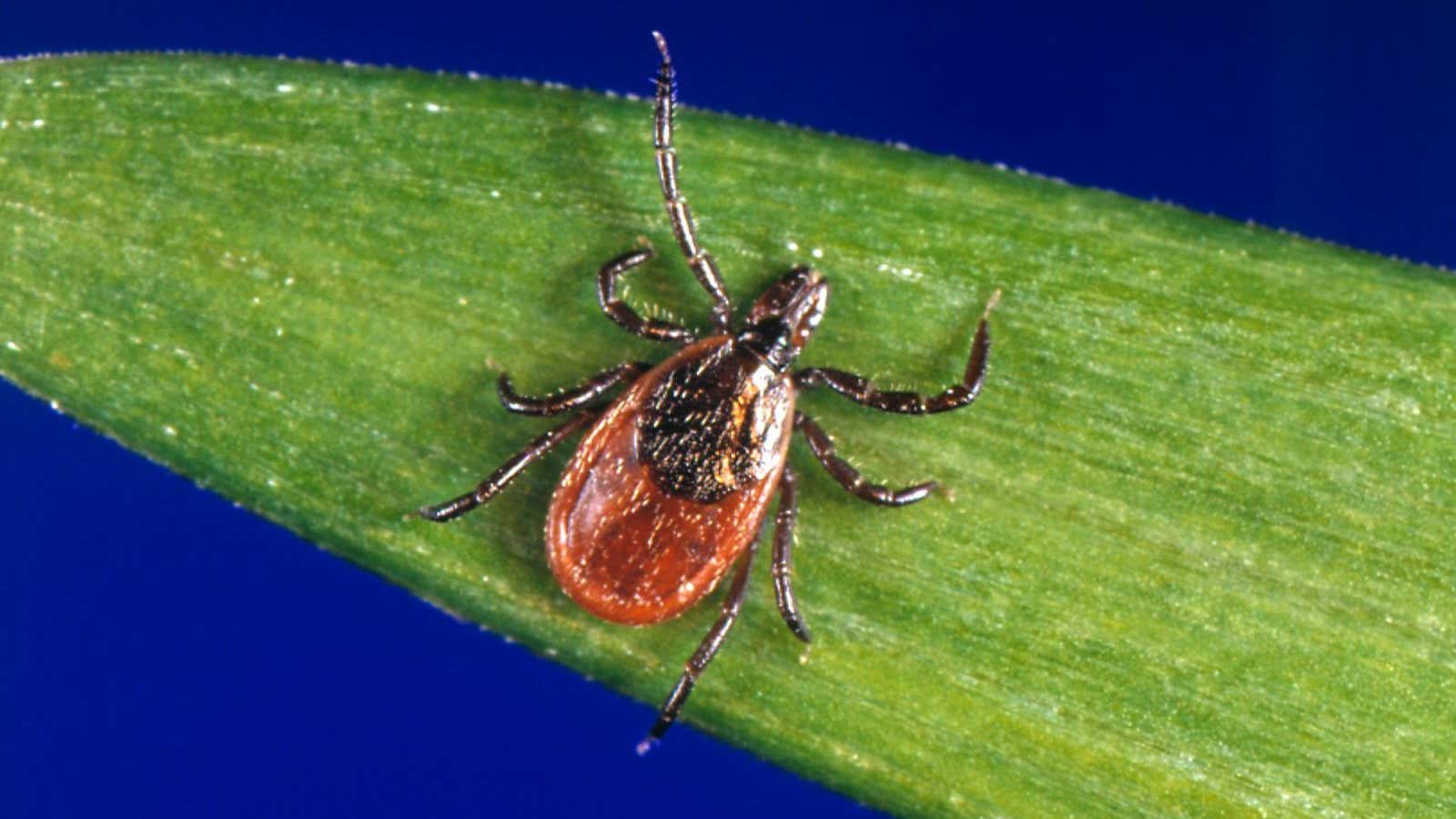To some, especially the average American, it might seem like a curse: All it takes is bite of a tiny tick to trigger an allergic reaction to steaks, burgers, and pork.
Researchers at the University of North Carolina presented some of their latest findings on the issue this past weekend (Feb. 23) at the American Academy of Allergy, Asthma, and Immunology’s annual conference. Ultimately, their work gives more reason for people to stay extra vigilant when in environments in which ticks—particularly lone star ticks—are common.
Allergies to red meat are most often caused by a type of sugar called alpha-gal that’s common in cows, sheep, and deer. It isn’t, however, found naturally in human blood. When introduced to the human blood system, it can trigger an immune response to red meat, including mild to severe allergic reactions—such a hives, headaches, or even anaphylaxis. The reaction is called “alpha-gal syndrome.”
Scientists believe ticks are the main culprit responsible for transmitting the sugar from mammalian wildlife to humans. What the new evidence presented this past weekend suggests, though, is that ticks don’t actually need to bite a wild animal first to transmit the sugar. They can, it appears, induce the allergic reaction on their own without ever biting another animal at all. The research has not yet been published in a peer-reviewed journal, so there’s still more to learn, but it suggests that the syndrome is caused by the tick itself, not the tick’s latest meal.
The researchers took white blood cells from humans, and removed their immunoglobulin E, an antibody produced by the body’s immune system as part of an allergic reaction. They then took those white blood cells and mixed them into plasma—the liquid that holds blood cells in suspension—from people known to have alpha-gal syndrome and those known to not have it.
Next, the researchers introduced saliva from four different types of ticks—lone star, deer, Gulf Coast, and American dog—to the white blood cells. Some of these ticks had recently fed on blood that contained the alpha-gal sugar and some had not.
The white blood cells did not react to the saliva from either the Gulf Coast or American dog ticks. However, the cells did react to the saliva samples from the other two types of ticks, particularly the lone star tick—even when those ticks hadn’t recently fed on alpha-gal-containing blood.
“These results suggest that more tick bites than we initially suspected could pose a risk for developing red meat allergy,” said Scott Commins, one of the study’s authors, in a statement.
The lone star tick is mostly found in the southeast United States, though the Mayo Clinic has noted that cases of alpha-gal syndrome do appear to be spreading further north and west. As of now, there is no treatment for the syndrome. Physicians and public health officials caution people to take preventative steps to avoid getting bitten, including wearing insect repellant and wearing long pants and sleeves when outside in wooded and grassy areas. They also suggest doing a full-body tick check after spending time outside.
